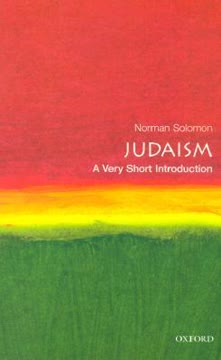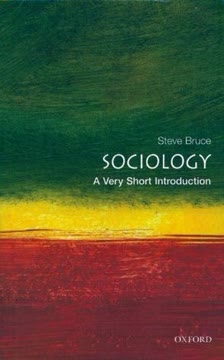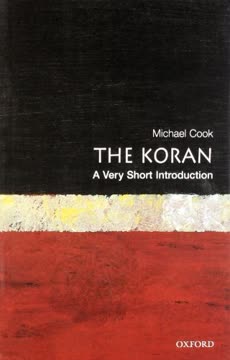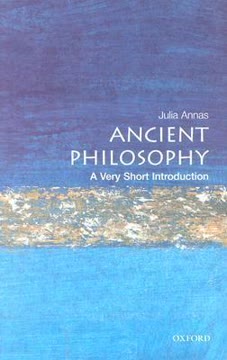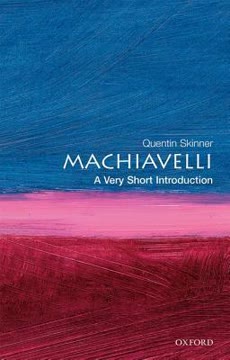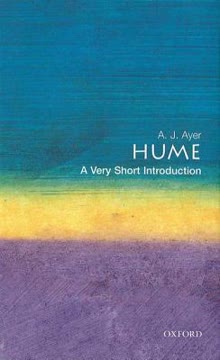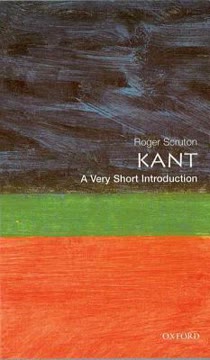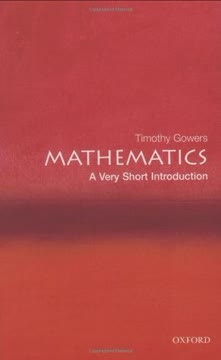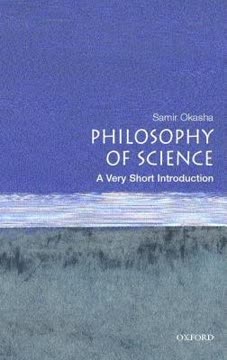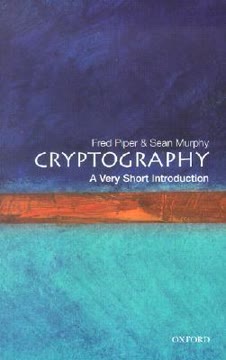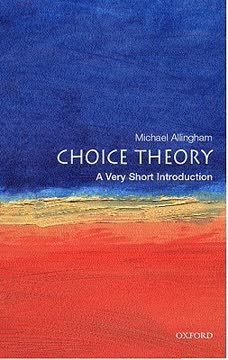つの重要なポイント
1. 人生の意味は単純な答えのない複雑な問いである
「人生の意味とは何か?」は、一見すると「アルバニアの首都はどこか?」や「象牙の色は何か?」と同じ種類の質問のように見える。しかし、本当にそうだろうか?
この問いは多面的である。 人生の意味は、単純な事実や声明で答えられるような直線的な問いではない。哲学的、心理的、文化的な次元が絡み合い、内在的に複雑である。この問い自体はさまざまな解釈が可能である:
- 何が人生に目的を与えるのか?
- 何が人生を生きる価値のあるものにするのか?
- 人間の存在には全体的な目標や設計があるのか?
- どのようにして私たちは人生において充実感や満足感を見出すことができるのか?
普遍的な合意は存在しない。 歴史を通じて、思想家や哲学者、宗教指導者たちは数多くの答えを提案してきたが、どれも普遍的な受け入れを得ることはなかった。この合意の欠如は、この問いの深く個人的な性質と人間の経験や信念の多様性を反映している。
2. 幸福と愛は人生の意味における強力な候補である
「愛とは、他者が成長できる空間を創造することであり、同時に彼もあなたのためにそれを行うことである。」
幸福は基本的な目標である。 アリストテレスをはじめとする多くの哲学者は、幸福(またはウェルビーイング)が人間の存在の究極の目的であると主張してきた。この幸福の概念は、単なる快楽を超え、以下を含む:
- 自己の可能性の実現
- 美徳ある活動への関与
- 目的意識と達成感
愛は関係性の意味である。 愛、特に他者との思いやりやつながりの広い意味においては、しばしば人生に最も深い意味を与えるものと見なされる。この見解は以下を強調する:
- 人間関係とコミュニティの重要性
- 他者を思いやることから得られる充実感
- 私たちの人生が周囲の人々と本質的に絡み合っているという考え
幸福と愛の調和。 一部の人々は、真の幸福と愛は最終的に一致していると主張する。なぜなら、私たちの最も深い充実感は、意味のあるつながりや他者の幸福への貢献を通じて得られるからである。
3. 死と死の意識が人生の重要性の理解を形作る
「私たちの死を意識して生きることは、現実主義、皮肉、真実性、そして有限性と脆弱性に対する厳粛な感覚を持って生きることである。」
死を直面することが人生を豊かにする。 限られた存在を意識することは、逆説的に人生をより意味深いものにすることができる:
- 本当に重要なことを優先するよう促す
- 現在の瞬間への感謝を育む
- ポジティブな遺産を残すことへの動機付け
死を哲学的なレンズとして捉える。 古代のストイック派から現代の実存主義者まで、多くの思想家は死の現実を用いて人生の意味を探求してきた:
- 存在や意識の本質についての問いを提起する
- 私たちの個々の人生を超えて何が持続するのかを考えさせる
- 限られた時間をどのように過ごしたいかを反省させる
死に対する文化的態度。 異なる社会や信念体系は、死に対してさまざまなアプローチを持ち、それが人生の意味に対する視点に影響を与える:
- 一部は来世や輪廻を強調する
- 他は個人を超えた業績や貢献に焦点を当てる
- 多くは、人生が儚いことを知りながら、現在を全うすることを奨励する
4. 意味の探求は歴史的および文化的文脈に深く影響される
「前近代社会において、あなたの人生の意味は、より大きな全体の中での機能から成り立っていた。この文脈の外では、あなたは単なる空の記号に過ぎなかった。」
社会的世界観の変化。 人間が人生の意味の問いにアプローチする方法は、時代とともに劇的に進化してきた:
- 前近代社会では、意味は伝統や神の秩序によってあらかじめ定められていると見なされることが多かった
- 啓蒙時代は理性と個人の自律を強調した
- 現代およびポストモダンの視点は相対主義や大きな物語の喪失に取り組んでいる
意味の創造における文化的変異。 異なる文化は、人生の意味の問いに多様なアプローチを取る:
- 一部は集団の調和や社会的役割を強調する
- 他は個人の自己実現を優先する
- 多くは宗教的または精神的信念と世俗的哲学を融合させる
現代の課題。 現代の世界は、意味の探求において独自の障害と機会を提供する:
- グローバリゼーションは私たちを多様な世界観にさらす
- 技術の進歩は新たな倫理的および存在的な問いを引き起こす
- 急速な社会変化は、根無し感や不確実性をもたらすことがある
5. 意味は人生に内在するものか、個人によって構築されるものか
「意味が『内在する』と言うことは、それが物事や状況自体に組み込まれているということであり、押し付けられるものではないということかもしれないが、それでもある程度の理解を得ることは可能である。」
内在的な意味に関する議論。 哲学者たちは、人生に内在的な意味があるのか、それとも意味は私たちが創り出すものなのかについて長い間議論してきた:
- 内在的な意味は、人生にあらかじめ存在する目的や設計を示唆する
- 構築された意味は、重要性を創造する人間の主体性を強調する
内在的な意味の主張:
- 神の計画に対する宗教的または精神的信念
- 客観的な道徳的価値に関する哲学的議論
- 生物学的な視点からの進化的目的
構築された意味の主張:
- 個人の選択と責任を強調する実存主義
- 文化的相対主義と人間の価値の多様性
- 意味の創造を認知的プロセスとして捉える心理学的理論
中間的な立場。 一部の思想家は、意味が現実の内在的な側面と人間の解釈との相互作用から生じると提案し、より微妙な見解を示唆している。
6. 「人生」という概念自体が、その意味を論じる際に問題を引き起こす
「おそらく、私たちが『人生』という言葉を持っているのは、私たちの言語が本質的に物事を具象化するからである。」
定義の課題。 「人生の意味は何か?」と尋ねるとき、私たちはしばしば「人生」自体の定義の複雑さを見落とす:
- それは個々の人間の存在なのか?
- すべての生き物の集合的な経験なのか?
- 存在や意識の抽象的な概念なのか?
言語の限界。 私たちの言語構造は、「人生」を単一で統一された概念として考えるように私たちを誤解させることがあるが、現実ははるかに複雑である:
- 異なる文化や言語は、人生をさまざまに概念化する
- 科学的および哲学的な定義はしばしば異なる
意味への影響。 「人生」をどのように定義するかは、その意味へのアプローチに大きな影響を与える:
- 個々の人間の人生に焦点を当てると、より主観的または実存的なアプローチにつながる可能性がある
- 人生をより広い生物学的または宇宙的な現象として考えると、より普遍的または客観的な意味が示唆されるかもしれない
問いの再構築。 「人生」の意味について尋ねる代わりに、次のように考えることがより生産的かもしれない:
- 何が個々の人生を意味のあるものにするのか?
- 私たちの特定の文脈の中で、どのように目的を見出すことができるのか?
- どのような価値や経験が人間文化全体で普遍的に重要であるのか?
7. 倫理的行動と社会的関係は、意味のある存在にとって重要である
「このように生きることは、単に生きることではなく、豊かに生きることである。」
倫理が意味の源である。 多くの哲学者は、倫理的に生きることが意味のある人生の鍵であると主張している:
- 自己の利益を超えた目的意識を提供する
- より大きな社会的および道徳的枠組みとつながる
- 個人的な成長や自己尊重につながることがある
関係の重要性。 人間関係は、意味のある人生の中心にあるとしばしば言われる:
- 感情的な支援と帰属意識を提供する
- 愛、成長、自己発見の機会を提供する
- 他者の幸福に貢献することを可能にする
個人と集団のニーズのバランス。 意味のある人生は、個人的な充実感と社会的責任の間の調和を見つけることを含むことが多い:
- 自分自身を超えた社会や大義に貢献する
- 他者に利益をもたらす方法で自分の才能や可能性を発展させる
- 個人と共同体の幸福を高める美徳を育む
8. 哲学的および宗教的伝統は、人生の意味に関する多様な視点を提供する
「1870年以前にアーティストたちがこの問いを提起したことは確かだが、全体的な文化の一部としては稀であった。」
哲学的アプローチ。 様々な思想流派が人生の意味に取り組んできた:
- 古代ギリシャの美徳倫理(例:アリストテレスのエウダイモニア)
- 個人の選択と真正性に焦点を当てた実存主義
- 全体的な幸福を最大化することに重点を置いた功利主義
宗教的視点。 主要な世界宗教は、人生の目的を理解するための異なる枠組みを提供する:
- 一神教の伝統は、神に仕え、神の戒律に従うことを強調することが多い
- 東洋の哲学は、輪廻のサイクルを断ち切ることや悟りを達成することに焦点を当てることがある
- 先住民の精神性は、自然との調和や先祖の知恵を重視することが多い
世俗的人間主義。 この視点は、超自然的な信念に頼らずに意味を求める:
- 人間の理性、倫理、知識の追求を強調する
- 個人と社会の進歩を通じて意味を創造することに焦点を当てる
- 科学的理解と批判的思考を重視する
多様な視点の統合。 現代の多くの思想家は、さまざまな伝統からの洞察を認識し、人生の意味に関する微妙な視点を発展させるために、複数の伝統を引き合いに出している。
9. 意味の追求は、個人と集団のニーズのバランスを取ることを含む
「しかし、バギーニのポイントを通して線を引くことは可能であり、これらの善のほとんどは互いに結びつけることができる。」
個人の充実感。 個人的な成長、自己表現、情熱の追求は、意味のある人生の鍵と見なされることが多い:
- 自分の才能や能力を発展させる
- 個人的な目標や願望を達成する
- 自律性と真正性を感じる
集団の幸福。 社会に貢献し、他者を思いやることは、深い意味の源としてしばしば引用される:
- 利他主義や思いやりの行為に従事する
- コミュニティや市民生活に参加する
- 社会的正義や環境の持続可能性に向けて働く
調和を求める。 多くの哲学者は、真の充実感は個人のニーズと集団のニーズを統合することから生じると主張する:
- 個人の才能を社会のニーズと調和させる方法を見つける
- 個人の成長と相互のケアを支える関係を育む
- 個人的に満足でき、社会的に有益な仕事や活動に従事する
文化的変異。 異なる社会は、意味の個人または集団の側面をさまざまに強調し、異なる価値観や世界観を反映する。
10. 人生の限界を認識することは、逆説的にその意味を豊かにすることができる
「絶望的な状況も、絶対的なものが存在しない世界では絶対的ではあり得ない。」
不完全さを受け入れる。 人生の固有の課題や限界を認識することは、存在へのより深い感謝をもたらすことができる:
- 不確実性や変化を人生の自然な一部として受け入れる
- 人生の儚さの中に美しさや意味を見出す
- 逆境に直面してもレジリエンスや適応力を育む
苦闘の価値。 多くの哲学者は、困難に直面することが意味のある人生に不可欠であると主張する:
- 障害を克服することは、個人的な成長や自己発見につながる
- 共有された苦闘は、連帯感やより深い人間関係を育む
- 人生の課題に直面することは、喜びの瞬間をより一層際立たせることができる
限界を機会とする。 制約は逆説的に創造性や意味を高めることができる:
- 限ら
最終更新日:
FAQ
What's "The Meaning of Life: A Very Short Introduction" about?
- Exploration of Meaning: The book delves into the philosophical question of what the meaning of life is, examining whether it is a genuine question or a pseudo-question.
- Philosophical Perspectives: It provides a Cook’s tour of Western philosophy and literature, discussing various philosophical perspectives on life's meaning.
- Cultural Context: The book situates the question of life's meaning within cultural and historical contexts, exploring how different eras have approached the topic.
- Author's Approach: Terry Eagleton approaches the subject with a blend of humor and seriousness, aiming to make a high-minded topic accessible and engaging.
Why should I read "The Meaning of Life: A Very Short Introduction"?
- Accessible Philosophy: The book offers a concise and accessible introduction to a complex philosophical question, making it suitable for readers new to philosophy.
- Engaging Style: Eagleton's writing is known for its wit and erudition, providing intellectual stimulation in a readable format.
- Broad Overview: It covers a wide range of philosophical thoughts and cultural references, offering a broad overview of how the meaning of life has been perceived.
- Thought-Provoking: The book encourages readers to reflect on their own beliefs and assumptions about life's purpose and meaning.
What are the key takeaways of "The Meaning of Life: A Very Short Introduction"?
- Multiplicity of Meanings: The book suggests that the meaning of life may not be singular but could encompass various interpretations and purposes.
- Philosophical Inquiry: It emphasizes the importance of questioning and exploring philosophical ideas rather than seeking definitive answers.
- Cultural Influence: The meaning of life is influenced by cultural, historical, and personal contexts, and understanding these can enrich one's perspective.
- Role of Language: Eagleton discusses how language and grammar shape our understanding of meaning, highlighting the complexity of the question.
What are the best quotes from "The Meaning of Life: A Very Short Introduction" and what do they mean?
- "The meaning of life is not a solution to a problem, but a matter of living in a certain way." This quote suggests that life's meaning is found in how we live rather than in abstract answers.
- "The solution of the problem of life is seen in the vanishing of this problem." Reflecting Wittgenstein's influence, this implies that understanding life's meaning may involve transcending the question itself.
- "Love is the way we can reconcile our search for individual fulfilment with the fact that we are social animals." This highlights love as a central theme, suggesting it bridges personal and communal aspects of life.
How does Terry Eagleton define the meaning of life in the book?
- Not a Single Answer: Eagleton argues that the meaning of life is not a single, definitive answer but a complex interplay of various factors.
- Ethical Living: He suggests that the meaning of life is more about ethical living and the quality of life rather than metaphysical truths.
- Love and Reciprocity: Love, understood as a reciprocal relationship that allows mutual flourishing, is central to Eagleton's view of life's meaning.
- Cultural and Historical Contexts: The meaning of life is also shaped by cultural and historical contexts, which influence how individuals perceive and live it.
What philosophical perspectives are explored in "The Meaning of Life: A Very Short Introduction"?
- Existentialism: The book discusses existentialist views, particularly those of Sartre and Camus, on life's absurdity and the search for meaning.
- Nihilism and Postmodernism: It explores nihilistic and postmodern perspectives that question the existence of inherent meaning in life.
- Religious and Theological Views: Eagleton examines religious perspectives, including the role of God and spirituality in providing life's meaning.
- Modern and Postmodern Thought: The book contrasts modernist nostalgia for lost meaning with postmodern acceptance of life's indeterminacy.
How does Eagleton address the role of language in understanding life's meaning?
- Language as a Tool: Eagleton emphasizes that language is a tool for constructing meaning, shaping how we perceive and articulate life's purpose.
- Grammar and Meaning: He discusses how grammar can mislead us into thinking that life has a singular meaning, similar to how it structures other concepts.
- Interpretation and Context: The book highlights the importance of interpretation and context in understanding meaning, suggesting that language is both a constraint and a creative force.
- Philosophical Implications: Eagleton draws on philosophers like Wittgenstein to explore how language influences philosophical inquiries into life's meaning.
What is the significance of love in "The Meaning of Life: A Very Short Introduction"?
- Central Theme: Love is presented as a central theme, seen as a way to reconcile individual fulfillment with social interconnectedness.
- Reciprocity and Flourishing: Eagleton views love as a reciprocal relationship that allows individuals to flourish through mutual support and care.
- Ethical Dimension: Love is not just an emotion but an ethical practice that involves creating spaces for others to thrive.
- Contrast with Happiness: While happiness is often seen as an individual pursuit, love is portrayed as inherently relational and communal.
How does Eagleton critique the idea of life having a singular, inherent meaning?
- Multiplicity of Meanings: Eagleton argues against the notion of a singular, inherent meaning, suggesting that life can have multiple meanings.
- Cultural and Historical Variability: He emphasizes that meanings are culturally and historically variable, shaped by different contexts and experiences.
- Critique of Absolutism: The book critiques absolutist views that seek a definitive meaning, advocating for a more nuanced understanding.
- Role of Human Agency: Eagleton highlights the role of human agency in constructing meaning, suggesting that individuals actively participate in shaping their life's purpose.
How does "The Meaning of Life: A Very Short Introduction" relate to modern and postmodern thought?
- Modernist Nostalgia: The book discusses modernist nostalgia for lost meaning, reflecting a time when life was perceived as more coherent and purposeful.
- Postmodern Acceptance: It contrasts this with postmodern acceptance of life's indeterminacy, where meaning is seen as fluid and constructed.
- Critique of Grand Narratives: Eagleton critiques grand narratives that claim to provide ultimate meaning, aligning with postmodern skepticism.
- Cultural Shifts: The book situates the meaning-of-life question within broader cultural shifts, exploring how modern and postmodern thought influence perceptions of meaning.
What role does ethical living play in Eagleton's view of life's meaning?
- Ethical Living as Central: Ethical living is central to Eagleton's view, suggesting that the meaning of life is found in how we live and relate to others.
- Quality of Life: He emphasizes the quality of life, focusing on virtues, relationships, and ethical practices that enhance well-being.
- Beyond Metaphysics: The book argues that life's meaning is not a metaphysical truth but an ethical practice, grounded in everyday actions and interactions.
- Love and Reciprocity: Ethical living is closely tied to love and reciprocity, where mutual flourishing and care are key components of a meaningful life.
How does Eagleton address the question of life's meaning in relation to death and mortality?
- Awareness of Mortality: Eagleton suggests that awareness of mortality can enhance life's meaning by fostering realism and a sense of finitude.
- Death as a Teacher: He views death as a teacher, encouraging individuals to live authentically and appreciate life's fragility.
- Life's Intensity: The book argues that mortality can intensify life, prompting individuals to seek depth and quality in their experiences.
- Ethical Implications: Awareness of death has ethical implications, encouraging individuals to prioritize meaningful relationships and ethical living.
レビュー
**『人生の意味:非常に短い入門書』**は賛否が分かれる評価を受けた。多くの読者は考えさせられる内容に感銘を受け、イーグルトンの文学的な引用やユーモアを楽しんだ。しかし、一部の批評家はその難解な言語、断片的な構成、明確な結論の欠如を指摘した。本書は人生の意味に関する問いを分析するものであり、決定的な答えを提供するものではない。イーグルトンはこのテーマに対する哲学的、宗教的、文化的な視点を探求し、伝統的な見解と現代的な見解の両方に挑戦している。このアプローチを評価する読者もいれば、タイトルの約束を果たしていないと感じる読者もいた。
Very Short Introductions Series Series
